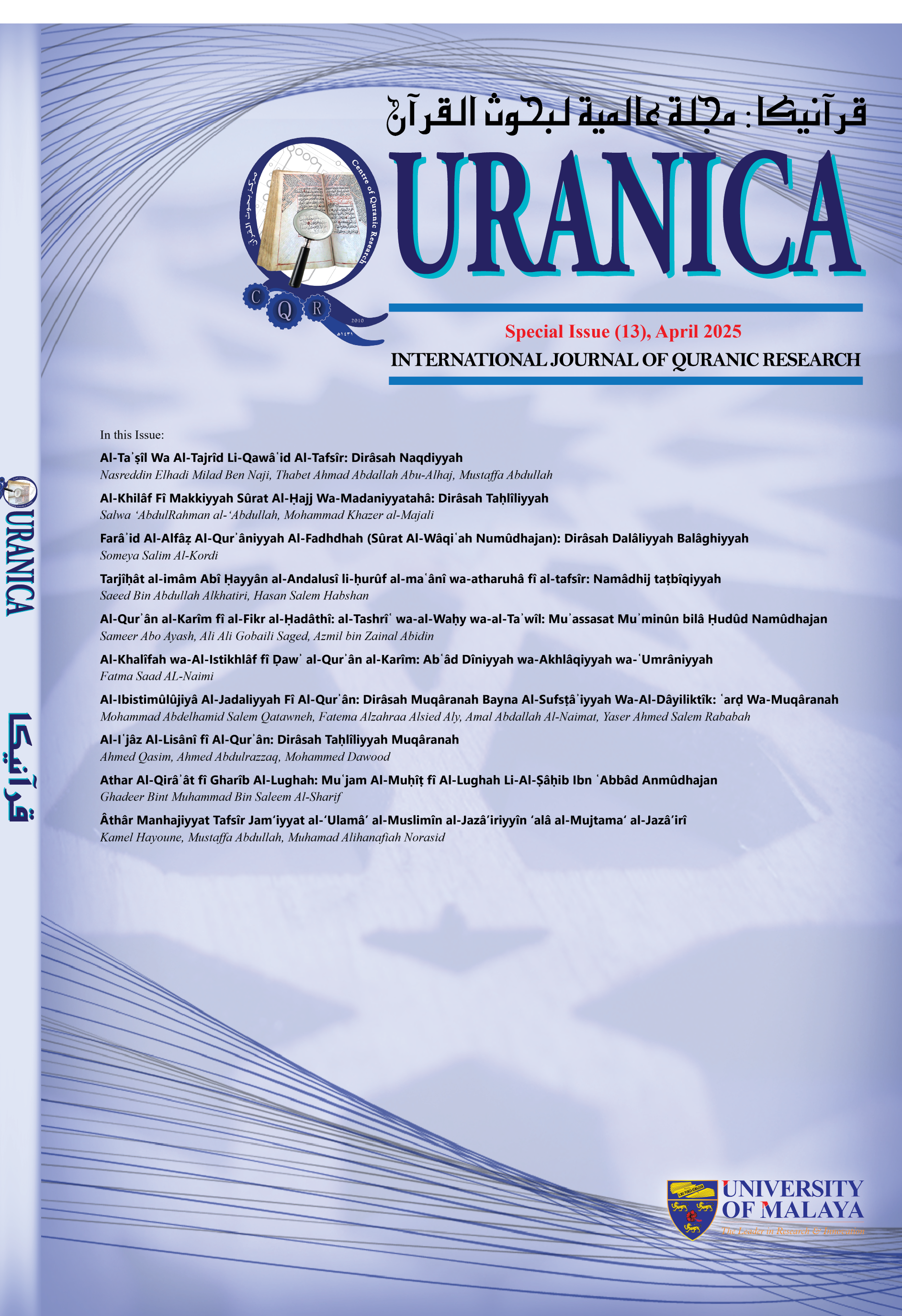Farāʾid Al-Alfāẓ Al-Qurʾāniyyah Al-Fadhdhah (Sūrat Al-Wāqiʿah Numūdhajan): Dirāsah Dalāliyyah Balāghiyyah
DOI:
https://doi.org/10.22452/quranica.vol17no1.3Keywords:
Unique Words, Rare Terms, Surah Al-Waqi‘ah, Linguistic Study, Semantic AnalysisAbstract
The Holy Qur’an is an eternal miracle and a divine banquet that transcends time. It serves as a source of guidance for all who seek it, each drawing from its wisdom in accordance with their diverse backgrounds and perspectives. Allah S.W bestows insight through it upon whomever He wills, and it remains inimitable in its language, structure, script, and eloquence. This study explores one of the Qur’an’s exceptional linguistic phenomena: the occurrence of unique Fara’id, also known as Qur’anic Hapax Legomena. These are words that appear only once throughout the entire Qur’an and do not reoccur in any form—neither as a root nor as a derivative. These distinctive words, referred to as Qur’anic Fara’id, represent a phenomenon worthy of scholarly investigation. Their uniqueness raises two fundamental questions: Why were these particular words chosen over others? And why do they not appear elsewhere in any form? These questions serve as the foundation for this study, which seeks to examine the linguistic and semantic significance of these unique terms. Surah Al-Waqi‘ah has been selected as a case study to analyze the occurrences of Fara’id, exploring their lexical meanings and their impact on the broader interpretive context. By doing so, this research aims to shed light on an aspect of the Qur’an’s extraordinary rhetorical and linguistic inimitability. I humbly askAllah for guidance and success in this endeavor.
Downloads
Downloads
Published
Issue
Section
License
Disclaimer
QURANICA makes every effort to ensure the accuracy of all its contents. However, opinions, discussions, views and recommendations are expressed in this journal do not necessarily reflect the official policy of QURANICA or views of its editors or publishers. Therefore, QURANICA and its publishers will not be liable for any controversy may be arisen. The journal reserves the right, at its sole discretion, to change its terms and conditions of publications.
Copyright
It is a condition of publication that manuscript submitted to the journal have not been published, accepted for publication, nor simultaneously submitted for publication elsewhere. By submitting a manuscript, the author(s) agrees that copyright for the article is transferred to the publisher, if and when the manuscript is accepted for publication.






